![Hooker, William: Light (1975 - 1989) [4 CD Box Set] (NoBusiness) Hooker, William: Light (1975 - 1989) [4 CD Box Set] (NoBusiness)](https://www.teuthida.com/productImages/misc4/21551.jpg)
A 4-CD set from NY drummer William Hooker documenting his early years between 1975-89 in 2 early LPs from his label Reality Unit Concepts, plus 2 never-issued sessions from '88 & '89; with David S. Ware, David Murray, Jemeel Moondoc, Roy Campbell Jr., Booker T. Williams, &c. &c.
Out of Stock
Quantity in Basket: None
Log In to use our Wish List
Shipping Weight: 8.00 units
Sample The Album:
William Hooker-percussion, vocals
Mark Miller-bass
David Murray-tenor saxophone
David S. Ware-tenor saxophone
Hasaan Dawkins-alto saxophone, tenor saxophone, flute, percussion
Les Goodson-tenor saxophone, flute, percussion
Alan Braufman-alto saxophone, flute
Mark Hennen-piano
Jemeel Moondoc-alto saxophone
Booker T Williams-tenor saxophone
Roy Campbell, Jr.-trumpet
Richard Keene-soprano saxophone, alto saxophone, tenor saxophone, flute
Lewis Barnes-trumpet
Click an artist name above to see in-stock items for that artist.
UPC: 4779022077623
Label: NoBusiness
Catalog ID: NBCD82-85.php
Squidco Product Code: 21551
Format: 4 CDs
Condition: New
Released: 2016
Country: Lithuania
Packaging: Box Set
Dsic One:
Track 1 recorded on 28th May, 1975 at Columbia University, New York City by Joe Walker.
Track 2 recorded on 4th May, 1975 in performance at the Cubiculo, New York City by Carl Williams
Track 3 recorded on 5th February, 1976 in performance at the Langston Hughes Library, Corona, New York City by Carl Williams
Disc Two:
Track 1 recorded on 20th May, 1976 in performance at the Columbus Branch, New York Public Library, New York City by William Hooker
Track 2 recorded on 19th November, 1976. It is an excerpt from TOWARDS THE NEW MUSIC / Public Broadcast Special for WHNB-TV, Channel 30, West Hartford, Connecticut.
Track 6 recorded in 1980
Disc Three:
Recorded on 22nd February, 1988 at Roulette Club, New York City with assistance of Jim Staley and staff
Disc Four:
Track 1 + 2 - recorded on 12th February, 1989 live at ÒChumleyÕsÓ in the Castle at BrandeisUniversity, Waltham, Massachusetts by Brian Crawford and staff / Broadcasted on 100.1 FM WBRS
Track 3 recorded in1981 at WKCR-FM, Columbia University, New York City
Disc Four: no recording data listed.
"A new archive release from NoBusiness's series of important musicians and group recordings from the 70s and 80s, which either were never released before or released on small private labels but long out of print and now newly remastered.
This release is dedicated to William Hooker's early music and covers his most important works during the period from 1975 to 1989. Newly remastered material is now presented in a 4 CD boxed set.
William Hooker is an artistic whole, a vast circle of vision and execution. A body of uninterrupted work beginning in the mid-seventies defines him as one of the most important composers and players in jazz. As bandleader, Hooker has fielded ensembles in an incredibly diverse array of configurations. Each collaboration has brought a serious investigation of his compositional agenda and the science of the modern drum kit. As a player, Hooker has long been known for the persuasive power of his relationship with his instrument. His work is frequently grounded in a narrative context. Whether set against a silent film or anchored by a poetic theme, Hooker brings dramatic tension and human warmth to avant-garde jazz. His ability to find fertile ground for moving music in a variety of settings that obliterate genre distinctions offers a much-needed statement of social optimism in the arts. A disciplined, adaptive, and energetic approach to his medium insures that the oeuvre of William Hooker will continue to grow thicker and richer.
Released in 1977, but assembled from live dates in 75 and 76, Is Eternal Life, was the first of many fruits of William Hooker's activism. A double LP [heard here as Disc One], it was a brash assault on the smugness of the gatekeepers. It features the earliest recorded work of two of our era's defining tenor players: David Murray and David S. Ware.
The essential qualities of Hooker's drum language and unique approach to band leadership are heard here in their fullness. Any vestiges of beats or swing are swallowed by a smearing constancy; super fast rolls are stacked and interleaved holograpically with crashes and high hat chatter to fashion structures that are functionally more tonal than temporal. These spaces and platforms are the sonic basis for the improvisations of whomever William has brought onstage with him. These other voices - in this case Hasaan Dawkins, Mark Miller, and Les Goodson, in addition to David Murray and David S. Ware - are contained by this idiosyncratic approach to drum sound, even as they are supported and informed by it.
The second disc in this set expands the documentation of Hooker's sophomore album, Brighter Lights, originally released in 1982. Like Is Eternal Life, this record was pressed on Hooker's 501C-3 record label Reality Unit Concepts. Brighter Lights features Alan Braufman on alto sax and flute and pianist Mark Hennen, who William still works with frequently. In this set of duets, we can hear how Hooker's vigorous embrace of the kit provides a compelling canvas for soloists and draws his accompanists into territory that exceeds any contrived expressionisms of free jazz clichés. In addition to the sides that made up the original LP, the second disc contains a stellar performance with Dawkins and altoist Jemeel Moondoc.
The third disc in this set features takes from a 1988 live date at Roulette. With the late Roy Campbell on trumpet and the under-recorded Booker T. Williams, Jr. on tenor, the three tracks on Disc Three provide excellent examples of William Hooker as a composer keenly aware of the complex interactions between instrumentalists and between their lines and his drumming. Campbell was a virtuosic colorist whose sense of humor and depth meshed well with Hooker's long form constructions. Williams digs into the spaces implied by Hooker's busy patterns to build melodic extensions that bring an almost vocal-like quality to the work.
Closing out this set, the fourth disc was recorded in 1989 and also features a trio-William with saxophonist Richard Keene and trumpeter Lewis Flip Barnes-and marks one of the last sessions where Hooker will be identified exclusively with the jazz improvisation scene. By the early 90s he has begun side projects with a host of rock/punk guitarists, although his style never fundamentally changed in pursuit of these novel collaborations. Barnes and Keene are well equipped to populate the architecture that Hooker erects. His power-packed, swing-free drumming and Salvador Dali- inspired brushwork can be heard as incentives for longer, perhaps more deliberate phrasing on the part of the tonal improvisers. Keene and Barnes work together as a unit, a pair of interconnected engines churning out light and shadow, harmony and tension, in equal measure. The fourth disc is an extended solo performance called "Continuity of Unfoldment". This work is a rare opportunity to hear this very lyrical drummer/percussionist without support or augmentation. Listening here is like watching time-lapse video of a Buddhist sandpainting and may provide the high point of this very well- assembled collection."-NoBusiness Records
Artist Biographies
• Show Bio for William Hooker "William Hooker is an American jazz drummer and composer. Hooker has performed as a leader of many ensembles of improvised and new music. "Recognized as an iconoclast, and one of the most innovative musicians and drummers of his generation, William knows no genre bounds and ceaselessly searches for new forms of music, always with the intent to inspire." Accompanying musicians have included: Billy Bang, Thurston Moore, David Murray, David S. Ware, William Parker, Melvin Gibbs, Donald Miller, DJ Olive, Elliott Sharp, Malachi Thompson, Zeena Parkins, Lee Ranaldo, DJ Spooky, Rob Brown, Roy Campbell, Mark Hennen, Steven Bernstein, Roy Nathanson, Jason Hwang, Dave Soldier, Sabir Mateen, Glenn Spearman, Joseph Celli, Ellen Christi, Liudas Mockūnas, and many others." ^ Hide Bio for William Hooker • Show Bio for David Murray "David Keith Murray (born February 19, 1955) is an American jazz saxophonist and composer who performs mostly on tenor and bass clarinet. He has recorded prolifically for many record labels since the mid-1970s. Murray was born in Oakland, California, United States. He attended Pomona College, graduating in 1977. He was initially influenced by free jazz musicians such as Albert Ayler and Archie Shepp. He gradually evolved a more diverse style in his playing and compositions. Murray set himself apart from most tenor players of his generation by not taking John Coltrane as his model, choosing instead to incorporate elements of mainstream players Coleman Hawkins, Ben Webster and Paul Gonsalves into his mature style. Despite this, he recorded a tribute to Coltrane, Octet Plays Trane, in 1999. He played a set with the Grateful Dead at a show on September 22, 1993, at Madison Square Garden in New York City. His 1996 tribute to the Grateful Dead, Dark Star, was also critically well received. Murray was a founding member of the World Saxophone Quartet with Oliver Lake, Julius Hemphill and Hamiet Bluiett. He has recorded or performed with musicians such as Henry Threadgill, James Blood Ulmer, Olu Dara, Tani Tabbal, Butch Morris, Donal Fox, McCoy Tyner, Elvin Jones, Sunny Murray (no relation), Ed Blackwell, Johnny Dyani, Fred Hopkins, and Steve McCall. David Murray's use of the circular breathing technique has enabled him to play astonishingly long phrases." ^ Hide Bio for David Murray • Show Bio for David S. Ware "David S. Ware was a major jazz saxophonist, conceptualist and bandleader. As major as they come. He began practicing meditation as a young man; going forward, his spiritual and musical development were inseparably intertwined. David S. Ware was born in Plainfield, New Jersey, on November 7, 1949. His early love of music was nurtured by some dedicated teachers at the Scotch Plains-Fanwood High School. He began his saxophone career at age 9 on alto, and then switched to baritone, before finally settling on the tenor as his musical voice. "I had played in all the school bands, the whole way through junior high and high school : marching band, concert band, dance band and orchestras." As a teen David was an ardent admirer of Sonny Rollins and struck up a relationship with the elder tenor player after seeing him countless times in the mid-'60s at the Five Spot and the Village Vanguard. The two practiced together intermittently in the '70s in Rollins' Brooklyn apartment; it was Rollins who taught young Ware the art of circular breathing in 1966. By the late-'60s, David was attending music school in Boston and playing on the local scene with Stanton Davis, Cedric Lawson, Art Lande, and Michael Brecker, who later recalled: "I remember how completely wowed I was when I heard David play - we were about 17 or 18 - here was a tremendously gifted artistic and creative presence - an inspiration to all of us." While in Boston, David met drummer Marc Edwards and pianist Cooper-Moore (né Gene Ashton), and together they formed a trio called Apogee. By 1973, David had moved to New York and became part of a circle of musicians, including Sam Rivers, David Murray, Butch Morris, Arthur Blythe, Don Pullen, Rashied Ali, and Frank Lowe, who were creating and cultivating their own loft-and-studio performing circuit at that time. Word of David's potent voice on tenor spread quickly, resulting in a flurry of crucial work. He became a member of the Cecil Taylor Unit in a group that included Marc Edwards, trumpeter Raphe Malik and the great alto saxophonist Jimmy Lyons, and performed with Taylor's legendary Carnegie Hall large ensemble. "Ware's distinct sound and Holy Roller fervor were already evident when he was 25, performing in Cecil Taylor's unforgettable 1974 Carnegie Hall big band." (Gary Giddins, Village Voice, August 1/7, 2001). Ware toured with the Cecil Taylor Unit throughout Europe, the U.S. and Canada, and recorded an album with this group, Dark To Themselves. Subsequently, Beaver Harris replaced Edwards on drums, which led to Ware joining Harris' 360 Degree Music Experience ensemble. It was also in this time period that David joined master drummer Andrew Cyrille's group Maono, who he remained with through the decade. Birth of a Being, David's first recoding under his own name (a 1977 Apogee trio session with Cooper-Moore and Marc Edwards), was released by the Swiss label hatHut in 1979. By 1981, David had toured Europe a half-dozen times: with Andrew Cyrille's Maono, the Cecil Taylor Unit, and even once with his own group (which included Beaver Harris, Cooper-Moore and bassist Brian Smith), and he had recorded four albums with Cyrille's Maono, including Metamusicians' Stomp and Special People for the Italian label Black Saint/Soul Note. In the early '80s, he collaborated with drummer Milford Graves. He toured Europe again in 1985 with his own group, a trio with bassist Peter Kowald and drummers either Louis Moholo or Thurman Barker. In 1987, David served briefly in trumpeter Ahmed Abdullah's band, the Solomonic Quintet, and recorded one self-titled album with them for the Swedish label Silkheart. During the '80s, David's concerns as a saxophonist shifted away from the rush and fury of extended improvisations, and into the area of concentrated thematic development. David formed a trio in 1988 with Marc Edwards and the astonishing bassist William Parker (also well-known in astute quarters by this time for his stellar presence in various Cecil Taylor groups), and recorded Passage To Music that year for Silkheart. In 1989, Ware put out the word that he was looking for a pianist. William Parker and Reggie Workman both recommended Matthew Shipp: "David got in touch with me and we started playing together. I was a big fan of Ware's work. Playing with Ware is like being at home. My style of piano really fits his compositions. He gives me freedom to be me. He doesn't put any restrictions on me." In 1989, the David S. Ware Quartet was born. From that moment forward, Parker & Shipp were elemental mainstays. The only personnel changes in the DSWQ were the drummers: Whit Dickey replaced Edwards in 1992, followed by Susie Ibarra in 1996, and finally Guillermo E. Brown in 1999. "I'm seeing more and more the value of keeping a group together," said Ware at the time. "Rather than freelance with 14 different bands, you make the group an institution. Looking at jazz over the decades, I feel this is how the music grows the most. Musicians get a chance to be thorough, to know the material and be involved instead of skimming over the surface." Rather than compromise his musical vision, Ware chose to be patient. "I drove a cab for 14 years. I stayed out of the scene until I was ready to do my thing." He also refused to do sideman gigs. "Working with other musicians doesn't work for me. Philosophically, I find it difficult to be under someone else's umbrella." The '90s saw the full-on actualization of this group, and the increasing recognition of David S. Ware as a true saxophone colossus. A series of ground-breaking albums by the David S. Ware Quartet were released in steady succession including: Great Bliss Vols. 1 & 2 on Silkheart; Flight of i, Third Ear Recitation, and Godspelized on the Japanese label DIW; Cryptology, DAO, and Wisdom of Uncertainty on the American labels, Homestead and AUM Fidelity. The DSWQ were one of the greatest bands in jazz history and one of the most highly acclaimed musical groups of the decade. David's efforts were partially rewarded by being among the very few jazz musicians of the modern era whose work was appreciated by listeners both inside and far outside the typical jazz audience. In an unprecedented coup, the Cryptology album garnered the coveted Lead Review slot in Rolling Stone. In late 1997, David was signed to the Columbia Jazz label by Branford Marsalis. "Branford caught my show [Vienne, France 1995] and he really dug what he heard. He was sincerely moved by the music, which he hadn't heard before. He really flipped." Two years later, when Marsalis was named the new creative director of Columbia Jazz, he called Ware up. David again: "Musicians worry that once they get a deal with a major label they'll have to water down their music. But Branford said 'don't change a thing, just keep playing like yourself.'" The first album for Columbia, Go See The World, was released in 1998, and it was indeed as unrelentingly powerful as any Quartet record that had come before. The second album for Columbia, Surrendered, was recorded in October 1999 and released in May 2000. It featured interpolations of Charles Lloyd's "Sweet Georgia Bright" and Beaver Harris' "African Drums," as well as four beautiful new compositions by David S. Ware. This gorgeous album more prominently showcased the lyricism that had always been a core foundation of the Ware Quartet's music. After making these two albums for Columbia, and in the wake of their Jazz department's dissolution, ways were parted in December 2000. Wasting no time, David and the Quartet went into the studio in February of 2001 to make a new album for AUM Fidelity. These sessions were the first showcase for David's interest in expanded sonic templates for the Quartet, and featured Matthew Shipp on keyboard synthesizer for the first time ever on record. It was also the first album David had made since forming the Quartet to principally feature compositions created in the studio, rather than a set of pieces rehearsed and performed prior. The epic Corridors & Parallels album was the result, released in September 2001. Shortly thereafter, the SFJazz organization commissioned Ware to prepare a new arrangement of Sonny Rollins' "The Freedom Suite," especially for the DSWQ to perform at their 2002 Spring Season. A studio recording of this beautiful new arrangement was then recorded in July and released in October 2002. "This is a perfect opportunity to show the link between me and Sonny," explained Ware, "an opportune time to show how one generation is built upon another and how the relationships work in the whole stream of music that's called jazz." David carried forth the DNA of the greatest that have shaped the art of jazz, with an original sound and advanced concept that continued the further development of the art form. His formidable artistic skills went beyond being an impeccable saxophonist, improviser and conceptualist. Matthew Shipp had for some time expressed a strong desire to produce a record for his label The Blue Series that would more explicitly showcase David's talent as a composer. This came to fruition with the recording of Threads in 2003. The resulting music, built on delicate, cinematic rhythms and melodic fragments, reveals a classical sensibility, and sounds like a new form of jazz chamber music. On some tracks, Ware's sax is nowhere to be heard; his artistry is fully presented through his distinct compositional approach. David explains. "I'm interested in using different techniques to get to a place of transcendence. The thing that makes music great is that it's an infinite thing, an endless thing. Personally, I'm interested in going down more than one path, as far as the form, the melody are concerned. I don't want to restrict myself as to what area or style of music I can deal with." After more than 15 years of performing with his quartet across Europe and the U.S., garnering a tremendous amount of critical acclaim along the way, the David S. Ware Quartet had not yet released a live recording. Rectifying that, Live in the World, released in 2005, was a three-disc offering of three different concerts, each representing different phases and selections of material. On performing live and touching on the transcendental, Ware says, "This is one of the ultimate things in musical experience, to touch upon that universal, that cosmic reality, that makes us all related. That makes us, all human beings on this planet, truly brothers and sisters." In September of 2005, on the occasion of Sonny Rollins' induction into the Nesuhi Ertegun Jazz Hall of Fame presented by Jazz at Lincoln Center, Mr. Rollins invited David and the Quartet to perform a section of "Freedom Suite" as part of the ceremony. By the Spring of 2006, David had a new set of compositions prepared for the Quartet, and it was decided to record these new pieces live in concert as well. That exquisite concert was the main headlining event at Vision Festival XI (NYC) in June 2006. It was also the last time that the DSWQ performed in the U.S. The resulting album, Renunciation, was released in April 2007 and was met with yet another round of acclaim from critics and fans alike. The DSWQ embarked on one final tour of Europe in Spring 2007 before disbanding, and the awesome penultimate concert of that tour was recorded and later released as the vinyl-only Live in Vilnius by NoBusiness Records. Even before Renunciation was released, David was conceptualizing other configurations and beginning to compose for same. In July 2007, a new group featuring guitarist Joe Morris made its debut at the Iridium Jazz Club in NYC. This group's membership was solidified with the addition of David's stalwart musical companion William Parker on bass, and fellow master musician Warren Smith on drums; they embarked on a European tour in November 2007, and continued working toward a studio recording which took place in May of 2008. The gorgeous resulting album, Shakti, was released in January 2009. 2009 was David S. Ware's 50th year of playing saxophone. He had planned to celebrate this momentous occasion by recording a special project in the Spring with the resulting album to be released in the Fall. However, his health reached a critical state in December 2008. David had been on peritoneal dialysis since being diagnosed with kidney failure in 1999 and though he had been profoundly productive since that diagnosis, the prospect of living on dialysis had finally reached its outer limits. An urgent message/search for a kidney donor was sent out to AUM Fidelity's email list on January 16, 2009. Among other blessed humans, Laura Mehr responded to this call and on May 12, 2009 one of her kidneys was successfully transplanted. Infinite blessings upon her. Only five months later, on October 15, 2009, David S. Ware made his triumphant return to the stage in a solo performance at Abrons Arts Center (NYC). This luminous concert - displaying an undiminished playing ability rich with new invention - prompted features in The New York Times and on NBC Nightly News. It was also recorded (of course), and released in March 2010 as Saturnian (solo saxophones, volume 1). In December 2009 Ware returned to the studio, fulfilling the original idea of marking his 50th year of singular saxophone artistry with a special recording date. The session featured David on three different saxophones (saxello & stritch in addition to his customary tenor), along with William Parker on bass and Warren Smith on drums and tympani. The session was not preceded by group rehearsals (unlike most of his albums from the past 20 years) as the intent was to let the forms of this new music express themselves; trusting in the collective skill of the assembled musical masters to manifest the majesty. This session was of the godhead and was released as Onecept in the Fall of 2010. This trio made their live debut at Vision Festival XV, NYC in June and performed a stellar pair of sets at the Blue Note, NYC to celebrate the album's release in October 2010. It must be stated plain and clear: David S. Ware's capacity for awe-inspiring invention and elocution thereof was stunning anew in this last stage of his creative life. His presentation of solo concerts continued with dates in Brooklyn (March 2010) and Chicago (Umbrella Festival, November 2010). Both of these were captured in full glory and released in September 2011 as the second installment in his planned series of solo recordings. In November 2010, a monumental new group communion took place at Brooklyn's Systems Two Studio: David S. Ware, Cooper-Moore, William Parker, and Muhammad Ali performed together for the first time ever. Planetary Unknown was the name of this group and the album, the release of which was celebrated with their worldwide live debut at Vision Festival on June 10, 2011. David was invited to perform at Jazzfestival Saalfelden in August 2011. That stunning concert was his final public performance. The final year of David's life was especially fraught with a series of severely increasing health complications stemming from the required regimen of immunosuppresant medications and his body's reaction to same. He fought hard and focused on the day when he would be able to play music again, looking forward to picking up even more new instruments. His body finally succumbing to an aggressive blood infection, David S. Ware passed away on the night of October 18, 2012 at Robert Wood Johnson University Hospital in New Brunswick, NJ. The blessings of his musical legacy will radiate for a very, very long time to come."-Steven Joerg ^ Hide Bio for David S. Ware • Show Bio for Jemeel Moondoc "Jemeel Moondoc (August 5, 1946 Ð August 29, 2021) was a jazz saxophonist who played alto saxophone. He was a proponent of a highly improvisational style. He was born in Chicago, Illinois, United States, and studied clarinet and piano before settling on saxophone at sixteen. He became interested in jazz largely due to Cecil Taylor and at the University of WisconsinÐMadison, he was a student of Taylor's. After that he moved to New York City, where he founded "Ensemble Muntu" with William Parker, Roy Campbell, Jr., and Rashid Bakr. The group also had its own Muntu record label, but eventually faced financial difficulties. In 1984, he formed the Jus Grew Orchestra, which secured a residency at the Neither/Nor club in the Lower East Side. He worked with Parker again in 1998's album, New World Pygmies. He died in August 2021, at the age of 75 from the effects of sickle cell anemia." From the biography entry of JemeelMoondoc.com, the website currently inactive: "It was Cecil Taylor who brought the young JEMEEL MOONDOC into modern jazz, and Jemeel has remained a devoted disciple ever since. Moondoc studied with Cecil Taylor and played in his Black Music Ensemble at Antioch College in 1970 - 1971, becoming a featured soloist. Moondoc's own early groups, the Ensemble Muntu, which included Arthur Williams, Mark Hennen, Roy Campbell Jr. William Parker, Rashid Bakr, et al, was very much in the Taylor mold, but Moondoc remained open to other influences as well; the recent release of a three-CD box set, The Muntu Recordings, (NoBusiness Records NBCD 7-8-9) chronicles the first recordings and performances of Jemeel Moondoc and Muntu during the New York loft jazz scene. (see http://www.pointofdeparture.org/PoD27/PoD27Muntu.html) In the 1980's Moondoc made three recordings for Soul Note Records including Judy's Bounce with Ed Blackwell and Fred Hopkins. This recording in particular gave Moondoc recognition as an innovative improviser and composer; his playing style sits somewhere between Ornette's country wail and Jimmy Lyons street corner preaching. In 1983 Moondoc formed the Jus Grew Orchestra, a group of improvisers that included Roy Campbell Jr. Bern Nix, Zane Massey, Steve Swell, Codaryl Moffett, Nathan Breedlove, John Voigt and others. Moondoc composed extensively, understanding, as did Mingus and Ellington, that t he strength and power of composition lies with the individual and unique talents of the orchestra members, he also use a technique called 'conduction' which is an improvisational technique were the conductor can guide the entire group through unwritten passages. At one point for about a year and a half during 1983 and 1984 Jemeel Moondoc and Jus Grew Orchestra performed every Thursday night at the Neither-Nor bookstore on East 5th Street. The Orchestra also did stints at the Nuyorican Poets Café, and First on First, with intermittent performances at the Fez. The Jus Grew Orchestra made two live CD performances - Spirit House [Eremite, 2000], recorded at UMASS at its Magic Triangle Jazz Series, and Live at the Vision Festival [Ayler, 2002]. Between 1985 and 1996 Jemeel Moondoc could not secure a recording date. "There was a lack of interest in recording so-called free jazz at the time", recalls Moondoc. "I remember thinking that the whole music scene was going downhill, I was still playing, I just didn't record, it didn't really bother me because I knew I was going to get the opportunity to record again". In 1995 Moondoc began a recording relationship with the now renowned Eremite Records label (eremite.com/eremite); between 1996 and 2002 he recorded several records on Eremite. The most acclaimed is Revolt of the Negro Lawn Jockeys 2001. This recording "shows a musician capable of drawing together the post-bop linage that includes Jackie McClean and Charles Mingus, and the free-jazz energy music tradition of Ornette Coleman and Cecil Taylor into one grand swinging synthesis", writes Ed Hazell in the liner notes. "Any quintet lineup featuring alto sax, vibes, bass and drums inevitably invites comparison with Eric Dolphy's Out To Lunch. Hard act to follow, but Jemeel Moondoc can hold his head up high. Those who take perverse pleasure in announcing the death of jazz in all its forms, should be strapped to a table and forced to listen to this 47-minute set until their ears bleed". - Dan Warburton, Paiisiantransatlantic.com . Jemeel Moondoc's "unorthodoxies are deeply rooted in the knowledge of and a profound feeling for his craft. His heavily vocalized sound on alto combines the sharp edge of Jackie McLean and a gentleness of tone reminiscent of Joe Henderson. He manipulates timbre as expressively as Albert Ayler. The vivid animation and emotionalism of his playing again recall Ayler , along with another of Black Musuc's great exponents, the South African musician Dudu Pukwana". But "Moondoc's rhythmic concept, delivery, and sense of space are completely unique; his phrases slip and wobble prankishly, forming impossible oblique shapes, while somehow holding to a melodic line". "Moondoc gives everything he does an old-world, future-world, other-word plurality. He is one of the most singular players in music, and one of the most eloquent and communicative storytellers", explains Michael Ehlers of Eremite Records. Moondoc is currently associated with the newly formed Relative Pitch Records, his newly released CD, Two 2012, is an intriguing duo dialogue between Connie Crothers and Moondoc, "the program finds the two players engaging in an off-the-cuff improvisations - the takeaway from this intimate series of duets is that Crothers and Moondoc are kindred souls - not the sort who traffic in cheap musical melodrama - the emotional reach in their interactions is real." (Derek Taylor - Dusted Magazine). Moondoc's newest release The Zookeeper's House 2014, has started to gain some critical acclaim. "Alto saxophonist Jemeel Moondoc has been keeping the faith in a post-free-jazz mindset for many years, working with bassist William Parker and others on the adventuresome avant-jazz fringes. He continues his progression with The Zookeeper's House, The new five-track set, with different groupings and musical angles, captures a distinctly live vibrancy and in-the-moment vulnerability in the studio. On the opening track, Moondoc is joined by sensitive foil Matthew Shipp on piano, bassist Hilliard Green and drummer Newman Taylor Baker, laying out the rumbling ruminations for Moondoc's six note, Albert Ayler-esque theme, played with brittle fervor by the saxophonist. Structure yields to abandon, and Moondoc's toothy, sharp-toned burst, angular fragments and sense of space alight, with empathetic help from his allies. On "Little Blue Elvira," a kind of ambling, slap-happy horn trio-with trumpeter Roy Campbell Jr. (who died a few months after this session, and to whom the album is dedicated) and trombonist Steve Swell joining the leader in unison-conjures up a Mingus vibe. Loose essences of Coltrane (or the Coltranes) are worked into the album's fabric with Alice Coltrane's "Ptah The El Daoud," another chord-less setting with Swell and Campbell, and the aptly named "One For Monk & Trane." "For The Love Of Cindy," with only drums, bass and the saxophonist's poetically embracing space, ends the album on an airy note, with a bittersweet ambiance vaguely redolent of Ornette Coleman's "Lonely Woman," but less lonely. With The Zookeeper's House; Moondoc returns-and-continues-a bit deeper and wiser". Josef Woodard-Downbeat Magizine October 2014" ^ Hide Bio for Jemeel Moondoc • Show Bio for Roy Campbell, Jr. "Roy Sinclair Campbell Jr. (September 29, 1952 - January 9, 2014) was an American trumpeter frequently linked to free jazz, although he also performed rhythm and blues and funk during his career. Born in Los Angeles, California, in 1952, Campbell was raised in New York City. At the age of fifteen he began learning to play trumpet and soon studied at the Jazz Mobile program along with Kenny Dorham, Lee Morgan and Joe Newman. Throughout the 1960s, still unacquainted with the avant-garde movement, Campbell performed in the big bands of the Manhattan Community College. From the 1970s onwards he performed primarily within the context of free jazz, spending some of this period studying with Yusef Lateef. In the early 1990s Campbell moved to the Netherlands and performed regularly with Klaas Hekman and Don Cherry. In addition to leading his own groups, he performed with Yo La Tengo, William Parker, Peter Brotzmann, Matthew Shipp, and other improvisors. Upon returning to the United States he began leading his group Other Dimensions In Music and also formed the Pyramid Trio, a pianoless trio formed with William Parker. He performed regularly as part of the Festival of New Trumpet Music, which is held annually in New York City. He died in January 2014 of hypertensive atherosclerotic cardiovascular disease at the age of 61." ^ Hide Bio for Roy Campbell, Jr.
1/26/2026
Have a better biography or biography source? Please Contact Us so that we can update this biography.
1/26/2026
Have a better biography or biography source? Please Contact Us so that we can update this biography.
1/26/2026
Have a better biography or biography source? Please Contact Us so that we can update this biography.
1/26/2026
Have a better biography or biography source? Please Contact Us so that we can update this biography.
1/26/2026
Have a better biography or biography source? Please Contact Us so that we can update this biography.
Track Listing:
CD 1
1. Drum Form 18:06
2. Soy: Material / Seven 26:48
3. Passages (Anthill) 19:27
CD 2
1. Pieces I and II 18:46
2. Above And Beyond 4:50
3. Others (Unknowing) 4:57
4. Patterns I, II And III 14:54
5. 3 and 6 / Right 13:15
6. Present Happiness 16:47
CD 3
1. Anchoring / Inclusion / 3 and 6 (Right) 24:16
2. Clear, Cold Light / Into Our Midst / Japanese Folk Song (traditional) 42:32
CD 4
1. Contrast (With A Feeling) 11:56
2. Naturally Forward 32:20
3. Continuity Of Unfoldment 16:18
Box Sets
Improvised Music
Free Improvisation
NY Downtown & Jazz/Improv
Staff Picks & Recommended Items
Search for other titles on the label:
NoBusiness.


![Hooker, William: Light (1975 - 1989) [4 CD Box Set] (NoBusiness) Hooker, William: Light (1975 - 1989) [4 CD Box Set] (NoBusiness)](https://www.teuthida.com/productImages/full/21551.Full.jpg)



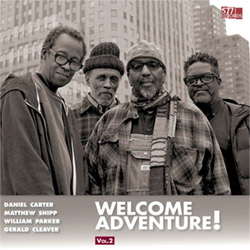


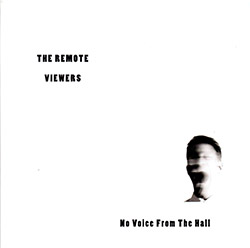
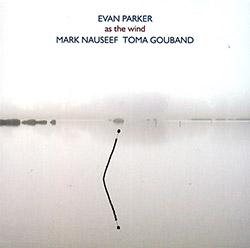
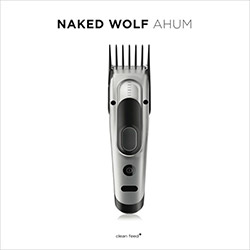
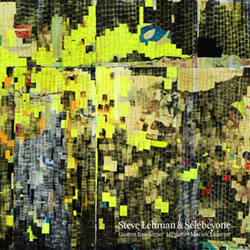
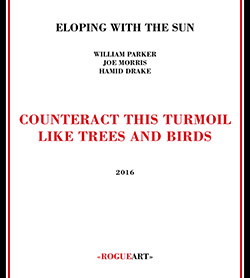
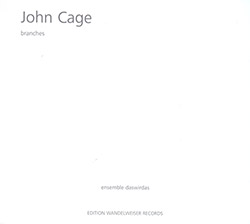
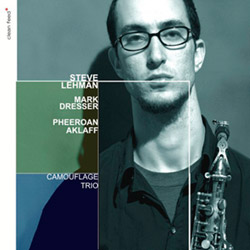
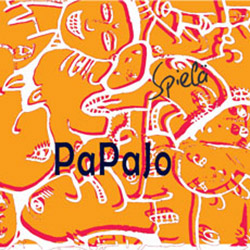
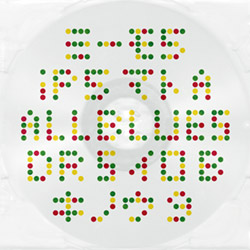


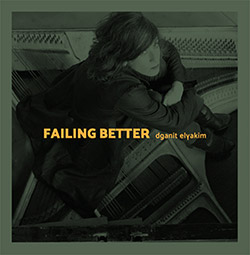


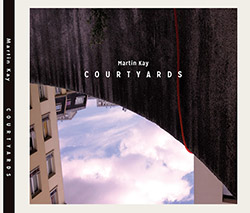
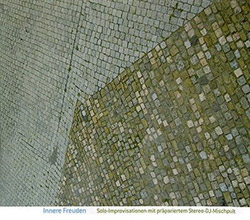

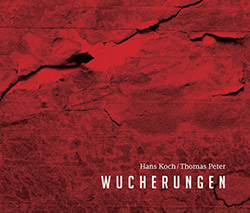
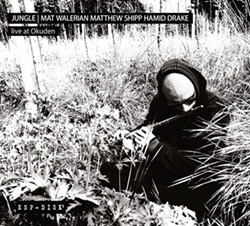
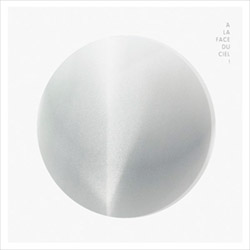

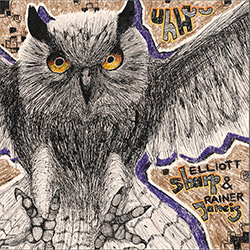
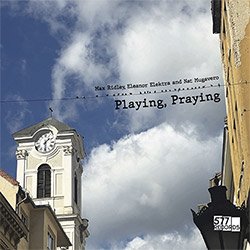

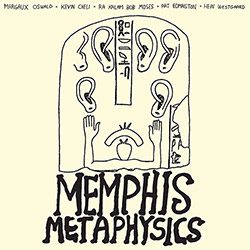
![Hoffman, Christopher: REX [VINYL]](https://www.teuthida.com/productImages/misc4/36934.jpg)
![Wrens: Half Of What You See [VINYL]](https://www.teuthida.com/productImages/misc4/37095.jpg)

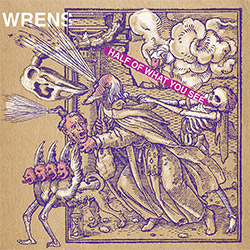
![Cartier, Pierre: Chansons de Douve [2 CDs]](https://www.teuthida.com/productImages/misc3/cartierChansonsDouve.jpg)



![Davies, Angharad / Burkhard Beins : Meshes Of The Evening [VINYL]](https://www.teuthida.com/productImages/misc4/36990.jpg)
![Bussmann, Nicholas / Sven-Ake Johansson / Yan Jun: Tea Time [Vinyl]](https://www.teuthida.com/productImages/misc4/36991.jpg)
![Feldman, Morton / GBSR Duo w/ Taylor MacLennan: Trios [6 CD BOX SET]](https://www.teuthida.com/productImages/misc4/37020.jpg)
![Williams, Jessica: Blue Abstraction: Prepared Piano Project 1985-1987 [VINYL]](https://www.teuthida.com/productImages/misc4/37080.jpg)
![Levin, Daniel / Laurent Estoppey: Freedom From The Known [VINYL]](https://www.teuthida.com/productImages/misc4/37091.jpg)
![Fagaschinski, Kai: Aerodynamics [VINYL 2 LPs]](https://www.teuthida.com/productImages/misc4/36992.jpg)
![Allbee, Liz: Breath Vessels [VINYL]](https://www.teuthida.com/productImages/misc4/37012.jpg)
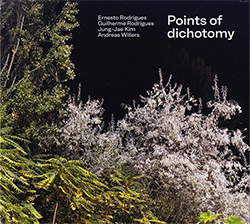
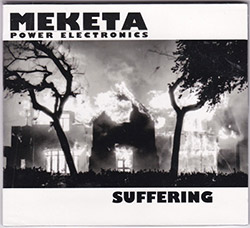


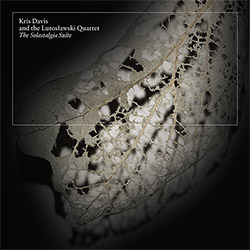
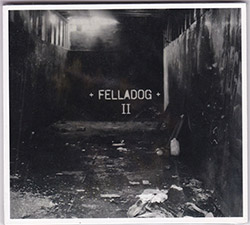


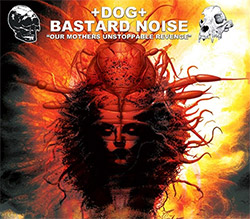



![Parker, Evan / Andrea Centazzo: Bullfighting On Ice! Live In Padova 1977 [VINYL]](https://www.teuthida.com/productImages/misc4/37064.jpg)
![Curran, Alvin / Andrea Centazzo / Evan Parker: Real Time [VINYL]](https://www.teuthida.com/productImages/misc4/37065.jpg)
![Curran, Alvin / Andrea Centazzo / Evan Parker: Real Time Two [VINYL]](https://www.teuthida.com/productImages/misc4/37066.jpg)
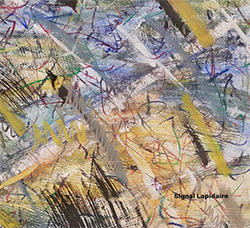

![Rodrigues, Ernesto / Jung-Jae Kim / Guilherme Rodrigues / Eric Bauer / Stephen Flinn: 5 In The Afternoon [2CDs]](https://www.teuthida.com/productImages/misc4/36957.jpg)



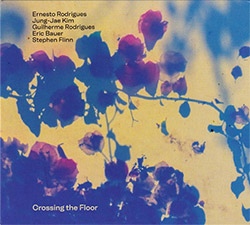





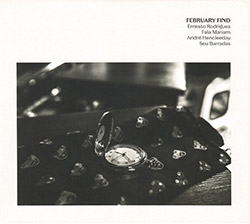
![Evans, Peter / Being & Becoming: Ars Ludricra [VINYL + DOWNLOAD]](https://www.teuthida.com/productImages/misc4/37026.jpg)

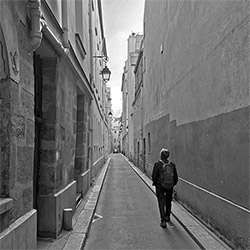
![Belorukov, Ilia / Alex Riva: Wrestling For Futility [CASSETTE w/DOWNLOAD]](https://www.teuthida.com/productImages/misc4/36994.jpg)


![Genthon, Anouck / Lionel Marchetti: Suite Blanche [2 CDs]](https://www.teuthida.com/productImages/misc4/36642.jpg)
![Toeplitz, Kasper T.: Erosions Programmees [CD + BOOKLET]](https://www.teuthida.com/productImages/misc4/36639.jpg)
![Gate, The : Almost Live [CASSETTE + MAGAZINE]](https://www.teuthida.com/productImages/misc4/36836.jpg)






![A Magic Whistle: The Solar Cell [VINYL]](https://www.teuthida.com/productImages/misc4/36658.jpg)

![McGee, Hal: Columbus Expedition [Cassette w/ Download]](https://www.teuthida.com/productImages/misc4/36650.jpg)


![Jaeger, Kassel: Fernweh [VINYL 2 LPs]](https://www.teuthida.com/productImages/misc4/36541.jpg)




![Frey, Jurg : Composer, Alone [3 CDs]](https://www.teuthida.com/productImages/misc4/36927.jpg)








![Frey, Jurg with ensemble]h[iatus: Je Laisse A La Nuit Son Poids D](https://www.teuthida.com/productImages/misc4/36988.jpg)




![Pisaro-Liu, Michael: Within (2) / Appearance (2) [2 CDs]](https://www.teuthida.com/productImages/misc4/36831.jpg)










![Musicworks Magazine: #151 Summer 25 [MAGAZINE + CD]](https://www.teuthida.com/productImages/misc4/36559.jpg)

![Brown, Dan / Dan Reynolds: Live At The Grange Hall [unauthorized][CASSETTE]](https://www.teuthida.com/productImages/misc4/36245.jpg)

![Zorn, John: The Song of Songs [CD + CD BOOK]](https://www.teuthida.com/productImages/misc4/36923.jpg)

![Coultrain: Mundus [COLORED VINYL]](https://www.teuthida.com/productImages/misc4/33056.jpg)
![Hprizm: Signs Remixed [COLORED VINYL]](https://www.teuthida.com/productImages/misc4/30635.jpg)
![Halls Of the Machine: All Tribal Dignitaries [CASSETTE w/ DOWNLOAD]](https://www.teuthida.com/productImages/misc4/36134.jpg)



![Koenjihyakkei: Live at Club Goodman [2 CDs]](https://www.teuthida.com/productImages/misc4/36111.jpg)

![Sorry For Laughing (G. Whitlow / M. Bates / Dave-Id / E. Ka-Spel): Rain Flowers [2 CDS]](https://www.teuthida.com/productImages/misc4/35985.jpg)

![Rolando, Tommaso / Andy Moor : Biscotti [CASSETTE w/ DOWNLOADS]](https://www.teuthida.com/productImages/misc4/36106.jpg)


![Electric Bird Noise / Derek Roddy: 8-10-22 [CD EP]](https://www.teuthida.com/productImages/misc4/35970.jpg)








![Elephant9 : Mythical River [VINYL]](https://www.teuthida.com/productImages/misc4/34624.jpg)



![Elephant9 with Terje Rypdal: Catching Fire [VINYL 2 LPs]](https://www.teuthida.com/productImages/misc4/35355.jpg)
![Coley, Byron: Dating Tips for Touring Bands [VINYL]](https://www.teuthida.com/productImages/misc4/17906.jpg)

![Lost Kisses: My Life is Sad & Funny [DVD]](https://www.teuthida.com/productImages/misc4/lostKissesDVD.jpg)